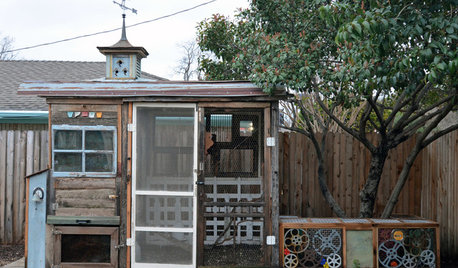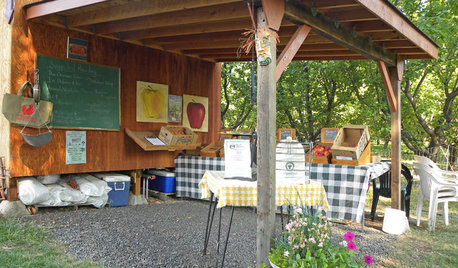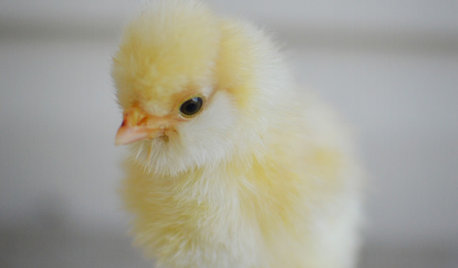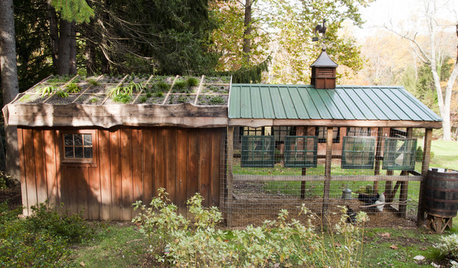Healthy-looking hens laying nada
henhilton
14 years ago
Related Stories

OUTBUILDINGSQuirky Meets Practical in a Dallas Chicken Coop
These hens have a stylish backyard coop built from recycled materials
Full Story
HOUZZ TOURSMy Houzz: The Orchard and the Life-Changing Decision
Toxins give way to pure, wholesome produce and passionately green living in this home and orchard in Eastern Oregon
Full Story
PETSWhat You Need to Know Before Buying Chicks
Ordering chicks for your backyard coop? Easy. But caring for them requires planning and foresight. Here's what to do
Full Story
FARM YOUR YARDHouzz Call: Show Us Your One-of-a-Kind Chicken Coops
Do you have a fun or stylish backyard shelter for your feathered friends? Post your pictures and stories in the Comments!
Full Story
KITCHEN DESIGNHouzz Call: What’s Cooking in Your Kitchen?
Most of us turn to recipes, videos and culinary shows when we cook. Where do you set your cookbook, tablet or TV screen?
Full Story
DECORATING GUIDESDecorating 101: How to Start a Decorating Project
Before you grab that first paint chip, figure out your needs, your decorating style and what to get rid of
Full Story
LANDSCAPE DESIGNGet Along With Less Lawn — Ideas to Save Water and Effort
Ditch the mower and lower your water bill while creating a feast for the eyes with diverse plantings and gathering places
Full Story
GARDENING GUIDES13 Risks to Take for True Garden Rewards
Go ahead, be a rebel. Breaking rules in the garden can lead to more happiness, creativity and connection with the earth
Full Story
MAN SPACESWhy Men Really Do Need a Cave
Don't dismiss cars, bars and the kegerator — a man space of some kind is important for emotional well-being at home
Full Story
LIFEHow to Outsmart Backyard Critters
Learn to think like a raccoon, skunk or squirrel to keep your home safe and your garden intact
Full Story





velvet_sparrow
gardendawgie
Related Professionals
Winder Landscape Architects & Landscape Designers · Edmond Landscape Contractors · Ellensburg Landscape Contractors · Lehigh Acres Landscape Contractors · Lynchburg Landscape Contractors · Shenandoah Landscape Contractors · Kirkland Fence Contractors · Newark Fence Contractors · San Mateo Fence Contractors · Tumwater Fence Contractors · Maple Grove Decks, Patios & Outdoor Enclosures · Boston Decks, Patios & Outdoor Enclosures · Dearborn Decks, Patios & Outdoor Enclosures · Mitchellville Decks, Patios & Outdoor Enclosures · Riverside Decks, Patios & Outdoor Enclosurespaulns
henhiltonOriginal Author
annpat
velvet_sparrow
keagles
henhiltonOriginal Author
gourd_friends
annpat
gourd_friends
henhiltonOriginal Author